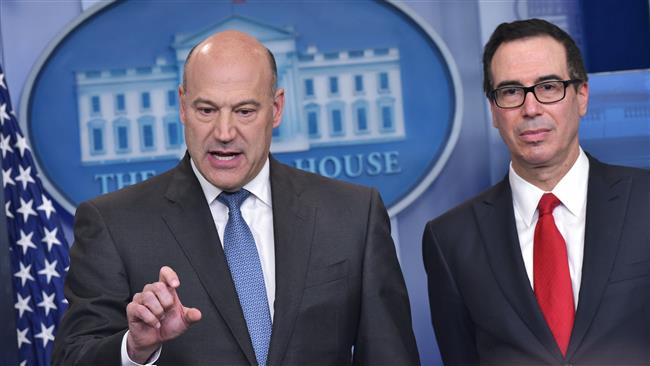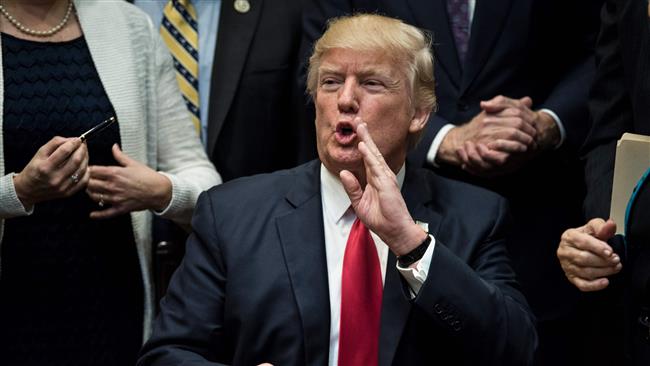Trump, Republicans pushing ahead on tax-cut plan despite skeptical public
The administration of US President Donald Trump, and fellow Republicans in Congress, are forcefully pushing ahead on a measure to cut taxes for corporations, despite surveys that show most Americans oppose the plan and studies that show it would not benefit the middle class and would increase the budget deficit.
The White House Council of Economic Advisers promises that the corporate tax cut, to 20 percent from 35 percent, would lead to more hiring and increase the average household income by at least $4,000 a year.
But that calculation depends on an assumption that workers would get a much bigger share of the corporate tax savings than most economic studies have shown, including studies by the US Treasury Department and Congressional Budget Office.
Most economists agree that the Republican tax plan will boost business investments, but say it’s unrealistic to expect the kind of investment windfall that proponents of the tax plan argue will prompt employers to raise wages.
Steven Rosenthal, a senior fellow at the nonpartisan Tax Policy Center, calculates it would be more like 10 to 20 years before the average household could get the $4,000 to $9,000 annual boost in income that the White House study estimates.
“It’s foolishness, complete foolishness,” Rosenthal said.
One of the key drivers of investment is access to money, which hasn’t been a problem for most businesses. Large companies, in particular, already have trillions of dollars in cash reserves. At the same time, after-tax corporate profits are at a historically high level as a share of the economy.
The majority of economic research suggests that most of the benefits of corporate tax cuts end up flowing to shareholders through stock buybacks or increased dividends and not to increasing the pay of ordinary workers.
“It’s a fantastically poorly targeted way of delivering a middle-class tax cut,” said Edward Kleinbard, a USC professor and former chief of staff to Congress’ Joint Committee on Taxation.
The broad-based US tax cuts proposed by Trump in September would mostly benefit the very wealthy while lowering government revenues by $2.4 trillion over 10 years, according to an analysis by the Tax Policy Center.
Successive rounds of federal tax cuts have eroded America’s progressive taxation and helped increase the massive wealth inequality in the US, according to research by the economists Thomas Piketty of the Paris School of Economics and Emmanuel Saez of the University of California at Berkeley.
VIDEO | Italy says sanctions against Russia have failed, calls for peace talks with Putin
May 6: ‘Axis of Resistance’ operations against Israeli occupation
Germany backs EU proposal to use frozen Russian assets to finance arms for Ukraine
Israel carpet-bombs Rafah after Hamas accepts Gaza ceasefire proposal
VIDEO | Don't let US, France bring expelled troops in Nigeria: Civil society groups
Why Iraqi Kurdistan is important for Iran
VIDEO | Press TV's news headlines
VIDEO | Agent of the Zionist entity
















 This makes it easy to access the Press TV website
This makes it easy to access the Press TV website